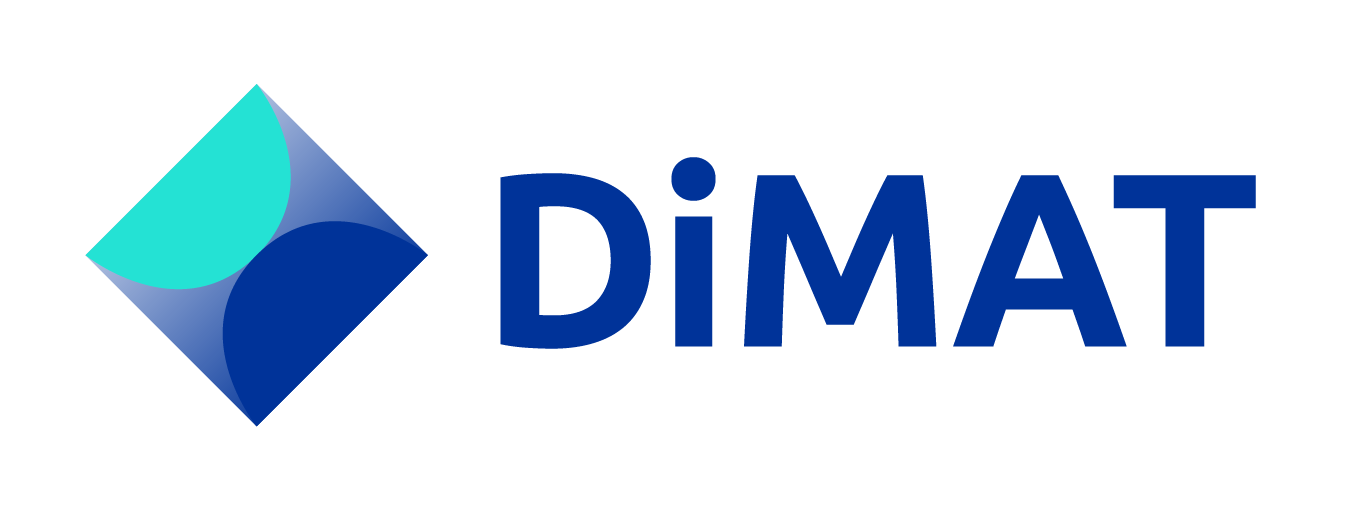©2026 MKLab.
Some Rights Reserved.
Built with Hugo & hyde-hyde.
Logo made by Freepik from www.flaticon.com
The DiMAT project addresses the sustainability and resilience of processes and systems within the materials manufacturing industry. An important takeaway from crises such as climate change and the pandemic was that sustainable action and resilient processes need to be the standard, not the exception. The digital transformation in the manufacturing industry (Industry 4.0, smart factory, etc.) is weakly coupled with materials science and engineering, a fact most prominent when considering that the share of the materials production cost is about 30-55 %, but the energy cost to produce a component is about 2-8 %. Large companies benefit from the close collaboration of the scientific community and the industry for the development of Integrated Computational Materials Engineering (ICME), due to their ability to invest in a wide range of computational tools. However, the same cannot be stated for Small-Medium Enterprises (SME) as they don’t have the resources to easily access materials-driven innovations, a fact that limits their ability to fully tap into the growing power of data-driven and AI-based solutions.
Τhe DiMAT Project aims to address problems and business cases of SMEs, which cannot generally afford to use costly modelling, simulation and optimisation systems, providing open-source tools based on open standards, with fully documented external programming interfaces in order to be interoperable with Enterprise Applications. The goal is the creation of Open Digital Tools with a set of advanced technologies for offering SMEs and Mid-Caps an affordable (in terms of cost, implementation and usability) full modelling, simulation and optimisation system in each stage of the materials value chain (design, processing and manufacturing). The framework will integrate data analysis services and visualisation techniques to facilitate more efficient design space exploration via experimentation, thereby reducing physical testing and improving quality, sustainability, effectiveness, and competitiveness of materials. DiMAT will implement a knowledge base to interlink the simulation-based twin technologies with data-driven approaches, using open-source implementation of AI algorithms along with open-source modellers and simulators. The technological solution will be co-designed with infrastructure owners and manufacturers and contributes to a holistic solution for the materials value chain with high quality, efficient, affordable and optimised systems, including platforms such as cloud infrastructures, model and simulation based twin technologies and data-driven approaches. The project will be evaluated and demonstrated within the scope of four diverse design and manufacturing use cases.
MKLab is the coordinator of the project and it leads the task of the development of the DiMAT Materials Modeler toolkit (MM), which will assist in discovering and designing competitive materials rapidly and effectively. The developed solutions will cover modelling a range of phenomena present in materials data by predicting materials properties and behaviour under different conditions, and by estimating or suggesting materials with improved properties with respect to certain requirements, via robust AI. MKLab also contributes to the development of the DiMAT Materials Mechanical Properties Simulator (MMS), implementing Explainable AI (XAI) techniques to predict materials' mechanical behaviour accurately using Finite Element Analysis (FEA) analysis, ensuring a robust rationale behind the estimation of the training, and the prediction of characterization parameters. Finally, MKLab contributes to the development of the DiMAT Materials Processing Simulator (MPS) implementing XAI techniques to predict processes' behaviour accurately.

HORIZON-CL4-2022-RESILIENCE-01-25 / HORIZON-IA HORIZON Innovation Actions